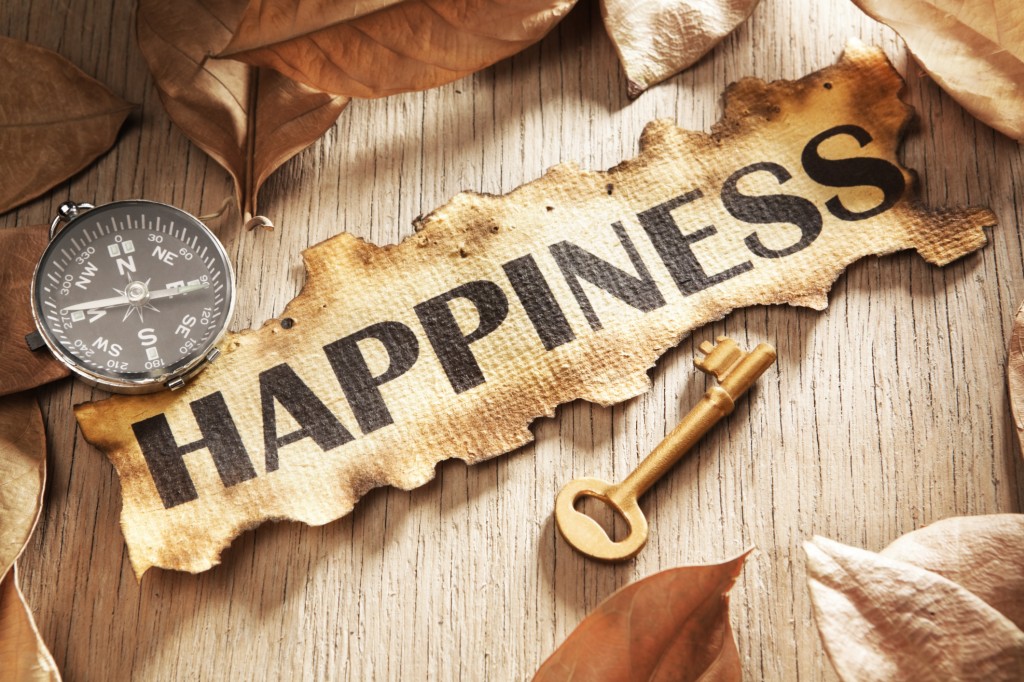 When you were a child, your parents most likely rewarded you on a fairly regular basis. Perhaps they told you how pretty you were, or bought you an ice cream cone as a reward for cleaning the yard. However they did it, the rewards you received helped guide you, and made you feel loved. Unfortunately, once you left your parent’s home, there was probably no one around to play the role of encourager and guide for you. The truth is–if you don’t do it for yourself, it probably won’t get done. As adults, we need to learn how to give ourselves rewards so we can be encouraged to move in a positive direction. However, most adults either give themselves indulgences all the time, or they almost never do. By learning the art of giving ourselves rewards at appropriate times, we can come to benefit from this powerful tool. Continue reading →
When you were a child, your parents most likely rewarded you on a fairly regular basis. Perhaps they told you how pretty you were, or bought you an ice cream cone as a reward for cleaning the yard. However they did it, the rewards you received helped guide you, and made you feel loved. Unfortunately, once you left your parent’s home, there was probably no one around to play the role of encourager and guide for you. The truth is–if you don’t do it for yourself, it probably won’t get done. As adults, we need to learn how to give ourselves rewards so we can be encouraged to move in a positive direction. However, most adults either give themselves indulgences all the time, or they almost never do. By learning the art of giving ourselves rewards at appropriate times, we can come to benefit from this powerful tool. Continue reading →
Tag Archives: happiness
How to Deal with Anger: The Adult Temper Tantrum
It’s been one of “those days.”  Too much to do, and not enough time to do it. Your boss yells at you for something that wasn’t even your fault; by the time you make it home, you’re fed up and stressed out. You slam the door, and then walk past your partner without saying a word. Your mate asks you about your day and why you slammed the door. Just the fact that they say anything to you makes you even more annoyed. You tell them, “I didn’t slam the door. There’s nothing wrong. Why do you always have to question me?” You spend the rest of the evening upset.
Too much to do, and not enough time to do it. Your boss yells at you for something that wasn’t even your fault; by the time you make it home, you’re fed up and stressed out. You slam the door, and then walk past your partner without saying a word. Your mate asks you about your day and why you slammed the door. Just the fact that they say anything to you makes you even more annoyed. You tell them, “I didn’t slam the door. There’s nothing wrong. Why do you always have to question me?” You spend the rest of the evening upset.
Sound familiar? Some people play out scenes like this on a fairly regular basis. During the day, some event or person makes them angry, and they spend the rest of the day and evening affected by it. Although the original upset has long gone, they carry the residue of the event with them like a bag of bricks on their shoulders. Without a clearly defined way to rid themselves of their irritation, they spend many hours feeling annoyed for no apparent reason. Then, seemingly out of nowhere, they “blow-up” in reaction to just about anything.
It doesn’t need to be like this. Think of how infants react when they get angry. Typically, they get very upset, scream or cry for awhile, then quickly return to a state of contentment. Instead of holding-in their feelings, they fully let them out. Once all their anger has been expressed, they feel calm and at peace once again. Unfortunately, adults have not learned how to deal with anger so well. We’ve been conditioned to repress our feelings of anger and upset. Yet, like steam escaping from a heated pressure cooker, our anger and resentment leaks out, and because it is only allowed to leak out a little at a time, it can take a long while before adults can feel at peace again. Continue reading →
Let’s All Celebrate Anti-Independence Day
 We’ve all celebrated Independence Day. I say it’s time we graduate from that teenage like holiday and start celebrating Anti-Independence Day. Perhaps we could call it Interdependence Day. The July 4th holiday and the American cult/culture it helped create celebrates our desire to be and do whatever we want. That’s a good start. Yet, that’s not the end of our journey, just like being a teenager is not the end point of a person’s maturity level. The truth is that we live in an interdependent world, and if we hope to make the world a better place, we need to acknowledge that we’re all in this together.
We’ve all celebrated Independence Day. I say it’s time we graduate from that teenage like holiday and start celebrating Anti-Independence Day. Perhaps we could call it Interdependence Day. The July 4th holiday and the American cult/culture it helped create celebrates our desire to be and do whatever we want. That’s a good start. Yet, that’s not the end of our journey, just like being a teenager is not the end point of a person’s maturity level. The truth is that we live in an interdependent world, and if we hope to make the world a better place, we need to acknowledge that we’re all in this together.
Before becoming mature adults, teens need to first assert their independence. But the goal for a teen is to not stop there. A middle-aged person still partying and being reckless like a teen is not a pretty sight. But isn’t that what we’re doing? The U.S.A. has been around for well over 200 years, yet we’re still proclaiming we’re the greatest and we don’t need anyone else. Immigrants? We don’t need them. The poor? Let them fend for themselves.
Like a cancer that grows at the expense of the body that supports it, too much of a focus on “me” and my wants can be bad for the human body—or the human race. In an age when even our phones and tablets start with the pronoun “I,” what we need is a little more “we.”
On a practical level, what would this look like? It might look like people deciding to forego more hours at work for more time with their family– or volunteering at a soup kitchen. It might look like being kinder to your neighbor or your co-worker. After all, if we truly are interdependent, then what goes around comes around.
As a happiness “expert”
I find it interesting that the number one way to quickly boost one’s happiness involves asking yourself a simple question. The question is, “What act of kindness can I do for a stranger or a friend today?” Since we truly are all connected, when we acknowledge that fact by an act of kindness, we actually feel happier.
So I propose we celebrate Interdependence Day. We could make it on July 5th—right after Independence Day. Just as High School follows Middle School, Interdependence Day would represent a graduation from the mindset that we once needed to survive, but are starting to outgrow. On Interdependence Day, instead of shooting off fireworks, we could practice acts of kindness. By doing that, we’d feel better, our beneficiaries would feel better, and we’d be making a statement that we are indeed all connected.
Positive Psychology Exercises
 What would it be like if you found out that you had a million dollars in a secret bank account, but you didn’t know it? Wouldn’t that be great? Well, in a certain way you do. You have enormous riches locked within you in the form of positive feelings—such as love, gratitude, compassion, and joy. The problem is, most people haven’t known how to access these feelings. Yet, the new field of Positive Psychology has developed simple exercises that can help anyone feel greater levels of happiness.
What would it be like if you found out that you had a million dollars in a secret bank account, but you didn’t know it? Wouldn’t that be great? Well, in a certain way you do. You have enormous riches locked within you in the form of positive feelings—such as love, gratitude, compassion, and joy. The problem is, most people haven’t known how to access these feelings. Yet, the new field of Positive Psychology has developed simple exercises that can help anyone feel greater levels of happiness.
For those who don’t know about Positive Psychology exercises, they’re simple methods that have mostly been developed by psychologist Dr. Marty Seligman. According to numerous studies, these quick methods can greatly boost your level of happiness. Since we’re all trying to be happier, having a “technology” that’s been shown to really work is cause for celebration. People currently use very inefficient methods of being happier—such as trying to make a lot of money or have fewer wrinkles. While such things work a smidgen, Positive Psychology exercises have been proven to work much, much better in creating feelings of true well-being.
You may be wondering, if these simple exercises work so well, then why don’t more people know about them? The reason is that there is not a lot of money to be made in teaching Positive Psychology exercises. You can make a lot of money selling pills—such as antidepressants—but there is very little money to be made teaching exercises that change people’s lives.
For better or worse, that’s my job
 I sell (for very little money I might add), a systematic course in teaching people the best and most powerful ways to quickly boost their level of happiness. There are over 30 methods in my Deeper Happiness course that have been shown to boost people’s level of happiness, and most of them take under three minutes a day to do. That’s great news. It’s like learning you had a million dollars lying around in the bank, but you didn’t know it.
I sell (for very little money I might add), a systematic course in teaching people the best and most powerful ways to quickly boost their level of happiness. There are over 30 methods in my Deeper Happiness course that have been shown to boost people’s level of happiness, and most of them take under three minutes a day to do. That’s great news. It’s like learning you had a million dollars lying around in the bank, but you didn’t know it.
Let me give you a couple of really quick examples of what I mean. One Positive Psychologyexercise is to do a Gratitude Journal. By writing down three things you feel grateful for during each day, your level of satisfaction with your life will gradually rise. To “turbo charge” your Gratitude Journal, you could include a sentence on how something about you helped make each of those good things happen. For instance, let’s say that one of the things you were grateful for was a good conversation with a friend. To make that statement even more powerful, you could say how your open heartedness helped you to create that experience.
Science often helps us discover things that seem to defy logic. It makes no sense that a 50 ton airplane can fly, but it obviously can. Likewise, it makes no sense that a simple 2 minute Positive Psychology exercise typically brings more joy into your life than if you suddenly doubled your income. But that’s what numerous studies have indicated. As I said, not knowing about the potential power of Positive Psychology exercises is like not knowing you have a million dollars in your bank account.
Now that you know that Positive Psychology exercises can truly impact your life, you have to figure out what, if anything, to do about it. Most people—because they have been hypnotized by their culture, will continue to put all their hope into finding happiness through ineffective means. They’ll hope that more money changes their life, or hope that the next relationship will magically make them fulfilled. Such endeavors will surely keep them busy, but are unlikely to help them discover the treasure of positive feelings living inside them.
Other people will do such things as read books about how to be happier
 Although such books contain valuable information, virtually no one uses what they read from books in a systematic manner in their daily life. It’s just too big of a jump. What’s needed is a simple, almost automatic way to be reminded to use Positive Psychology exercises in daily life.
Although such books contain valuable information, virtually no one uses what they read from books in a systematic manner in their daily life. It’s just too big of a jump. What’s needed is a simple, almost automatic way to be reminded to use Positive Psychology exercises in daily life.
That’s why I created the Deeper Happiness daily audio program for learning and using such exercises. In the program, a person listens to a fun 15-minute talk each morning before they get to work that details a great Positive Psychology exercise. Then, their task is to use that simple exercise sometime during their day. I created the program so that people could really incorporate these great exercises into their daily lives. Most the exercises take only 2 minutes a day to do, and the supplied reminder cards help a person to remember to do the exercises.
The typical result of doing these simple techniques days after day is that your life feels more purposeful, fun, joyous, and meaningful. Soon, you learn which methods really work amazingly well for you, and which don’t seem like a good fit. Once you find simple ways to help you quickly overcome negative feelings and tune into positive feelings, your life will never be the same. It will be like finally having complete access to that secret bank account of riches. You can even get the first three Positive Psychology exercises from the Deeper Happiness program for free here. You’ll be amazed at how well these simple methods can improve the quality of your life, health, and relationships.
Everything You Know about Happiness Is Wrong
 You are living in a dangerous cult. I mean it. Of course, like most people in cults, you don’t think it’s dangerous—or that it’s even a cult. This “cult” that you (and I) are living in is the hyper capitalist economic system of modern day life.
You are living in a dangerous cult. I mean it. Of course, like most people in cults, you don’t think it’s dangerous—or that it’s even a cult. This “cult” that you (and I) are living in is the hyper capitalist economic system of modern day life.
In this cult or cult-ure we’re part of, we’re hypnotized to believe certain things that are not really true. For example, we’re conditioned to believe that if only we had more money, or the right relationship or less wrinkles—THEN we’d be a lot happier. Studies prove that these ideas aren’t actually true, but we eventually start to believe them because we’re constantly bombarded with such messages.
Here’s a question that can determine if you’ve truly been indoctrinated into the capitalist cult. Which of these two options do you think would make you happier? Option one: winning over a million dollars in the lottery. Option two: becoming paralyzed from the waist down. Which do you think would lead you to being happier after a year of time has passed?
If you think the obvious answer is winning the lottery, you’re wrong. It means you’ve bought our cult’s basic dogma—that what happens to you determines your level of happiness. Although such a notion is widespread and unquestioned in Western culture, scientific research does not bear this idea out. People who are paralyzed and people who win the lottery are equally happy after a year of time has passed.
In the search for  happiness that we are all on, you can’t assume anything that you’ve heard. Unfortunately, our culture is constantly pushing its ideas about finding the “good life” onto us, and that brainwashing does not necessarily have anything to do with being happy. After all, does Donald Trump look joyous to you? In the last twenty years, the average GDP of Chinese citizens has gone up 400%, and yet their average level of happiness has actually gone down.
happiness that we are all on, you can’t assume anything that you’ve heard. Unfortunately, our culture is constantly pushing its ideas about finding the “good life” onto us, and that brainwashing does not necessarily have anything to do with being happy. After all, does Donald Trump look joyous to you? In the last twenty years, the average GDP of Chinese citizens has gone up 400%, and yet their average level of happiness has actually gone down.
In our culture, we’ve also been led to believe that having a lot of choice is a good thing. There are over 24,000 items to choose from just in your local supermarket. With the Internet, our range of choices has become virtually infinite. The problem is we’ve been led to assume that the more choices we have, the richer and more satisfying our lives will become. Yet, numerous studies show that our gluttony of choice mostly just adds to our level of stress–and makes us less contended with our lives.
In fact, contrary to cult doctrine, having a lot of money, good health, or a job you enjoy doesn’t truly lead to happiness. Rather, research shows that we have it completely backwards. Numerous studies indicate that it is being a happy person that leads to having more money, good health and a job you enjoy. Highly fulfilled people end up making over $750,000 more during their lifetime than people who are unhappy. Highly contented people also live an average of 8 years longer than the rest of us, and have half the level of divorce.
If the specifics of our lives (money, health, job, choice) don’t determine our level of happiness, what does? Researchers have identified several factors. First, part of our happiness is determined by our genetics. Unfortunately, there’s nothing we can do about that. Yet, much of our level of well-being is due to our attitude, our focus on relationships, and certain beliefs and behaviors that happy people tend to have. Fortunately, many of these attitudes and behaviors can be easily learned.
 Here’s just one example. Highly contented people tend to schedule time each week for activities they truly enjoy. On the other hand, unhappy people tend to make excuses as to why they don’t have time for what they really like to do. Here’s another example. Happy people make being with friends and enjoying life a central priority in their life, whereas less contented folks make things like making money their main priority.
Here’s just one example. Highly contented people tend to schedule time each week for activities they truly enjoy. On the other hand, unhappy people tend to make excuses as to why they don’t have time for what they really like to do. Here’s another example. Happy people make being with friends and enjoying life a central priority in their life, whereas less contented folks make things like making money their main priority.
Here’s the problem. How do you become a happy person while living in a cult (culture) that does not value what really leads to happiness? It’s hard. It requires going against the grain of what the people around you are doing. It means you need to ignore the 500 or so advertising messages you get each day, and instead listen to the still, small voice inside. In fact, that’s what happy people do a lot. They spend quiet time in nature. They surround themselves with people, books, and ideas that nurture their dream of a joyful, caring, and deeply fulfilling life.
Like you, I was conditioned to think that certain things would make me happy. For better or worse, I got many of those things at an early age. I got rich. I wrote books that got me on Oprah and other national shows on numerous occasions. Instead of feeling a sense of accomplishment, I felt like I always had to do something bigger and better in the future. I was not a happy camper. There was only one way out—and that was “in.” As I studied the research on happiness, I learned that everything I’d been taught about how to be happy was basically not true.
It turns out  that the American Dream is actually a repetitive, busy, and not too unpleasant nightmare. I soon realized that always striving for more, always being busy, and constantly competing for recognition was not a path to greater peace of mind. As I began to see through the brainwashing of Western culture, I began to notice what really made me happy. What really made me happy wasn’t having bouncy hair, a big house, or a Mercedes. It ends up it was little moments of depth and joy I could find in everyday life. Nowadays, I spend more time playing with my dog, watching sunsets, hanging out with my friends, reading great books, and meditating.
that the American Dream is actually a repetitive, busy, and not too unpleasant nightmare. I soon realized that always striving for more, always being busy, and constantly competing for recognition was not a path to greater peace of mind. As I began to see through the brainwashing of Western culture, I began to notice what really made me happy. What really made me happy wasn’t having bouncy hair, a big house, or a Mercedes. It ends up it was little moments of depth and joy I could find in everyday life. Nowadays, I spend more time playing with my dog, watching sunsets, hanging out with my friends, reading great books, and meditating.
So your mission, should you decide to accept it, is to find out what actually makes you uniquely happy. Assume you’ve been in a dangerous cult and you need to get free of its programming. Ask questions, explore new ideas, and notice when your actual experience does not match up with beliefs and behaviors that have been forced on you from the cult we’re in. To help show you the way, there is a certain group of people who tend to be very happy a lot of the time. This “group of people” are kids under the age of six. What do they do differently than adults? They play more, they plan less, and they explore the present moment fully and completely. That’s a good place to start on the ever-evolving road to happiness.
How to Easily Manage Your Mood
 We all want to experience deeper peace in our lives, or simply have more joy. As a teacher of workshops on happiness, I’ve looked for quick ways to help people quiet their minds and/or enjoy more fun and play. Of the many different things I’ve tried, I’ve found one formula to be so simple and effective that I heartily recommend it to everyone. I call this method The Magical Playlist.
We all want to experience deeper peace in our lives, or simply have more joy. As a teacher of workshops on happiness, I’ve looked for quick ways to help people quiet their minds and/or enjoy more fun and play. Of the many different things I’ve tried, I’ve found one formula to be so simple and effective that I heartily recommend it to everyone. I call this method The Magical Playlist.
In essence, the Magical Playlist is simply an iTunes playlist of songs created for a specific purpose. By creating playlists dedicated to certain moods, you can easily have access to some of your favorite feelings — with hardly any effort. After all, your personal favorite songs have the ability to move you into your heart, uplift your spirit, and help you feel a depth of peace.
A man named Frank came to see me complaining of marital difficulties. As he entered my office, it was clear that he was very tense. He told me that his wife was fed up with him because of how stressed he was from his job as an air traffic controller. When he went home each evening, he’d spend the first three hours in front of the tube–just trying to unwind from his job. By the time he started to feel a bit relaxed and sociable, his wife was ready to go to bed. After asking him some questions, I learned that he enjoyed classical music. I suggested he make a playlist of his favorite classical works, and listen to a couple of songs in his car before entering his house each evening. When he returned to my office the following week, he told me that his wife reported, “You’ve become a new man.” Apparently, ten minutes of classical music helped Frank unwind much more effectively than three hours of TV. By the time he walked into his house each night, Frank was relaxed, refreshed, and emotionally available for his wife.
For many people, music is an easy and amazingly effective way to become centered. I’ve coached many of my clients to carefully choose the type of music to play before key events in their life. Before an important presentation, they might choose a favorite rock ‘n roll song. Before a romantic night on the town with their mate, they may choose a favorite love song. Before a time of meditation or prayer, they may choose some New Age or quiet piano music. By knowing what mood you’d like to “get into,” and choosing an appropriate piece of music to assist in that process, many people find they can successfully manage their moods much more effectively than ever before.
 Of all the possessions I own, my iPod is my most treasured. By listening to certain songs, I have almost immediate access to any feeling I want—without any cost, and no known side effects! When making certain playlists, I looked through all the songs I have on my computer, and carefully selected songs that have always had the most impact on me. Nowadays, I have special “mood altering” playlists categorized in five different ways: First, songs that put me in a fun and happy mood. In this category, I have songs like “Twist and Shout” and “I Wanna Hold Your Hand” by the Beatles. It’s hard to sing along with such songs without getting a smile on your face. Try it and you’ll see what I mean.
Of all the possessions I own, my iPod is my most treasured. By listening to certain songs, I have almost immediate access to any feeling I want—without any cost, and no known side effects! When making certain playlists, I looked through all the songs I have on my computer, and carefully selected songs that have always had the most impact on me. Nowadays, I have special “mood altering” playlists categorized in five different ways: First, songs that put me in a fun and happy mood. In this category, I have songs like “Twist and Shout” and “I Wanna Hold Your Hand” by the Beatles. It’s hard to sing along with such songs without getting a smile on your face. Try it and you’ll see what I mean.
Second, I have a playlist dedicated to meaningful, mellow songs that help put me in my heart. In this category, I have songs such as Kansas’ “Dust in the Wind.” By putting a lot of heart-oriented songs in one playlist, I have a guaranteed way to calm down and feel contemplative when I feel so inclined. Third, I have a playlist of my favorite instrumental songs. Sometimes I just want to quiet my mind, and heartfelt instrumental music can often do the job even better than a time spent meditating.
 My fourth “magical” playlist includes songs that make me feel energized and motivated. These are songs I like to shout to, like Bruce Springsteen’s “Born to Run,” or U2’s “Vertigo.” After shouting to a couple of songs on this playlist, I feel like I can tackle anything. Finally, I have a playlist of songs that make me feel all lovey and mushy inside. These songs are great to listen to before you spend time with your mate or a date.
My fourth “magical” playlist includes songs that make me feel energized and motivated. These are songs I like to shout to, like Bruce Springsteen’s “Born to Run,” or U2’s “Vertigo.” After shouting to a couple of songs on this playlist, I feel like I can tackle anything. Finally, I have a playlist of songs that make me feel all lovey and mushy inside. These songs are great to listen to before you spend time with your mate or a date.
After a five to ten minute vacation with some of your favorite music, your mind will be clearer and your soul more soothed. With hardly any effort at all, you’ll find that you can transcend a nasty mood—or simply a stressful day. You’ll end up being able to better handle whatever life throws your way. The hour or so it takes to put your initial playlists together will be amply rewarded by countless hours of peace, love, and energized enthusiasm. It’s an amazingly effective investment in your well-being…
I’d Love to Inspire You Today!
 I am very excited to share some great news with you. Today, I am the featured Inspirational Luminary on InspireMeToday.com, which allows me to share some of my wisdom with people around the world.
I am very excited to share some great news with you. Today, I am the featured Inspirational Luminary on InspireMeToday.com, which allows me to share some of my wisdom with people around the world.
The Inspire Me Today website features “useful ideas” of a new Luminary every day, and I am honored to be chosen as one of them. On this site, you can read a brief article on a specific idea meant to inspire you and be truly useful in your life. Other Inspire Me Today picks have included Sir Richard Branson, Guy Laliberte, Seth Godin, Neale Donald Walsch, and many more.
Please visit the site on February 21st, 2013 and help me inspire the world. If my traffic and comments break records, InspireMeToday.com will share my content with millions of additional people too! I hope you’ll check it out, leave a comment and share it with your friends. To help you stay inspired, they also provide 3 minute ‘Today’s Brilliance’ pick-me-ups each day by email, by RSS feed or in an iPhone app.
From the folks at Inspire Me Today and from me, thank you in advance for your kind support. Together we really can inspire the world.
Be inspired,
Jonathan
Charming Your Partner
I have a question for you: for $500, could you make your partner feel upset in under one minute? Most people answer an emphatic “Yes!” To accomplish this, you would probably bring up some event, person, or question that invariably irritates your partner. We even have a term for this–“pushing my buttons.” When someone pushes our buttons, it is commonly accepted we have no choice but to get upset. Over time, our partner usually learns where all our “buttons” are.
While “pushing my buttons” signifies a way our partner can easily make us upset, we have no phrase for the opposite effect–when our mate does something that invariably makes us feel loving. We could call it “pushing my love buttons,” but there’s no poetry in a phrase like that. I prefer to call it “charming my heart.” When someone “charms” us, it’s as if they have cast a spell of enchantment over our heart. A wonderful way to experience more love in your relationship is to learn of “automatic” ways to charm your partner’s heart. When your partner feels fully loved by you, guess how they’ll treat you? Soon, you’ll both be charming each other’s heart in an upward spiral that leads all the way to heaven. Ahhh, how sweet it can be!
 The way we tend to express love to another person is, in most cases, the way in which we would like to receive it. I have fallen into this trap. I used to give my wife massages because that’s what makes me feel loved. Even if a gorilla gave me a massage, I’d feel totally loved. My wife used to frequently tell me she loved me because that’s what she wanted to hear. When people are unaware of their partner’s preferred ways of feeling loved, they end up expending a lot of energy that goes unappreciated. Yet by knowing exactly what helps your partner feel safe and loved, it becomes infinitely easier to create intimacy on a consistent basis.
The way we tend to express love to another person is, in most cases, the way in which we would like to receive it. I have fallen into this trap. I used to give my wife massages because that’s what makes me feel loved. Even if a gorilla gave me a massage, I’d feel totally loved. My wife used to frequently tell me she loved me because that’s what she wanted to hear. When people are unaware of their partner’s preferred ways of feeling loved, they end up expending a lot of energy that goes unappreciated. Yet by knowing exactly what helps your partner feel safe and loved, it becomes infinitely easier to create intimacy on a consistent basis.
There is a simple exercise you can do with your partner to find out how best to “charm their heart.” Have him or her become comfortable in a chair, and then say the following: “Close your eyes, take a deep breath, and begin to think of a specific time you felt really loved by me. Remember that time as clearly as you can. Remember where we were, what we were doing, and exactly what happened that let you know I really loved you.” Give your partner a minute or so to fully re-experience such a moment. Then proceed, “What was most important in letting you know I fully loved you? Was it something I said, or the way I looked at you, the way I touched you, or something else? What exactly helped you to know that I really loved you?” Listen carefully to what your partner says, because the answer(s) to this question can transform your relationship.
 By knowing how your own heart is charmed, you can reveal this important information to your partner. Try the previous exercise on yourself, or have your partner read it to you. You may be surprised to discover exactly what your partner does that creates a warm feeling of safety and love in you. Once your mate knows how to help you feel loved, they can more easily and consistently show you they care.
By knowing how your own heart is charmed, you can reveal this important information to your partner. Try the previous exercise on yourself, or have your partner read it to you. You may be surprised to discover exactly what your partner does that creates a warm feeling of safety and love in you. Once your mate knows how to help you feel loved, they can more easily and consistently show you they care.
Every time you charm your partner’s heart, you’re making a “loving deposit” in to your “shared love account.” Your shared love account is like a bank balance you share together. When things are going well, there’s a lot of love put into “savings.” When both of you consistently make deposits into your shared account, you feel abundantly in love. It’s much easier to handle problems when there’s an abundance of love in your love account. Therefore, make frequent deposits of love in your relationship account by charming your partner’s heart. Remember to do the little actions that make a big difference in how your partner feels. It will immediately help both of you feel wonderfully intimate, and when problems arise, you’ll have plenty of love “banked” to help you ride out the storm.
Jonathan’s Happiness Blog

You’ve probably figured it out – I’m writing a blog! But NOT one of those useless blogs where people blab about stuff you already know or don’t care about. It’s a blog dedicated to “Useful Stuff” such as how to be happier, less stressed, more peaceful, and live life to the fullest. From my 10 books and the many seminars I teach, I get a lot of feedback as to what people find truly useful. That’s the type of stuff I plan to elaborate on in my blog.
Since I assume you’re as busy as I am, I’ll keep my blog posts short and chalk full of practical suggestions. I’ll also try to make you laugh and entertain you with my crazy antics and stories. If all goes according to my scheme, you’ll read my blog as an inspiring break from your day, and be motivated to try little “experiments” to make your life even more enjoyable and adventurous.
Thanks for reading what I have to say….





